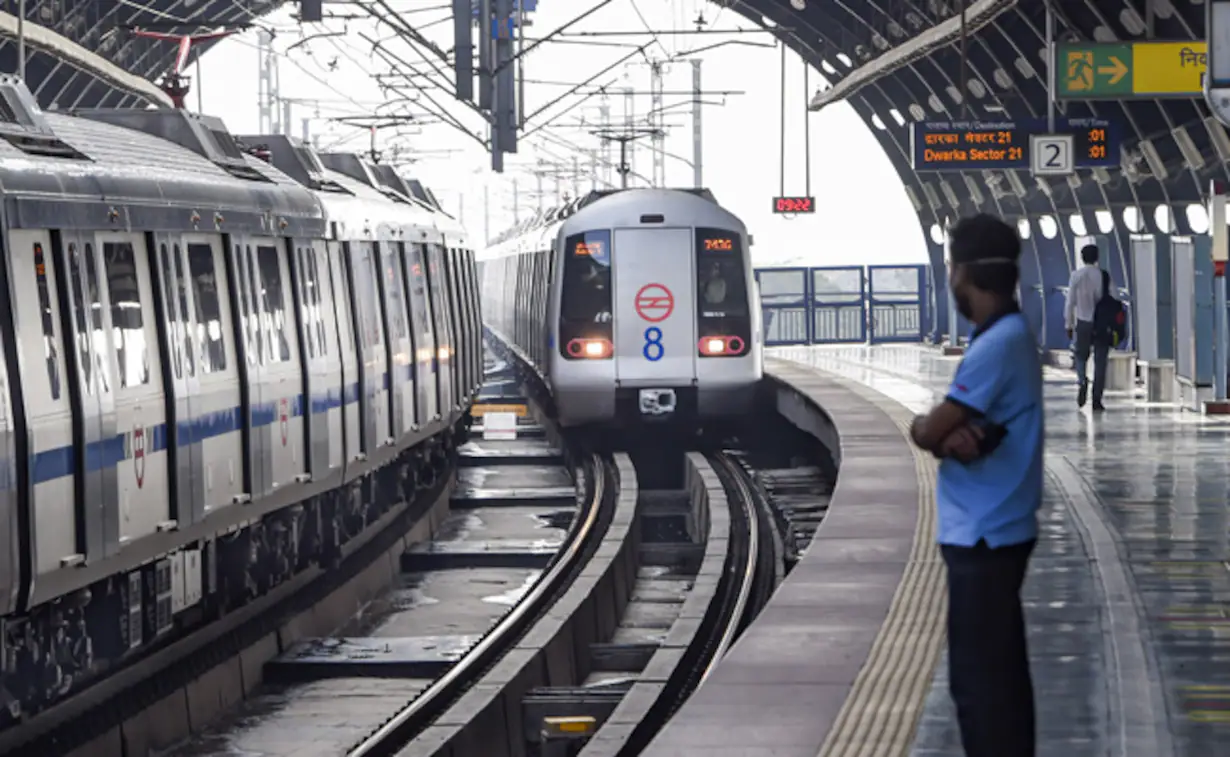NEW DELHI: After city buses and metro in the national capital began to operate with 50 per cent seating capacity, people around the city expressed their concerns as they are facing issues in commuting. However, a few sections of people also supported the decision considering the increasing number of COVID-19 cases.
With the fresh restrictions imposed by the District Disaster Management Authority (DDMA), the Delhi Metro operates at 50 per cent seating capacity and no standing passengers are allowed.
A commuter said, “We have to leave our house 2 hours before the scheduled time. Here on the bus, they don’t take passengers, but at the bus stand, the crowd is gathered. We have to stand for hours because of which we are late for our work.”
“Buses are coming but due to less seating capacity the waiting time for passengers has increased causing crowding at the bus stop,” said a commuter. Speaking to ANI, Vikas, a bus marshal said, “Our focus is to avoid crowding inside the bus and make sure there is physical distancing, everyone is wearing masks and following COVID-19 guidelines.”
Meanwhile, long queues were seen outside Laxmi Nagar and Akshardham metro stations. “Government’s decision to reduce seating capacity is good; People should follow COVID appropriate behaviour,” said a commuter.
Another commuter supported the government’s decision and said it should have taken this decision a week earlier than the cases would have not risen.
“As per the situation step is good but people are facing a problem. All the gates are closed and only one gate is open, which will lead to gathering and eventually cases will rise. Our expenses are also increasing. Government should think about the commuters,” said Anamika, a commuter.
Earlier the DDMA authorities in its new guidelines had said that the DTC and other city buses shall also ply with only 50 per cent of the total seating capacity in view of the new norms.
Following the emergence of the Omicron variant, Delhi Chief Minister Arvind Kejriwal on Tuesday declared a ‘yellow alert’ under which schools, colleges, cinemas and gyms shall be closed, shops dealing in non-essential items will open on an odd-even basis, and metro trains and buses will run with 50 per cent of seating capacity in the city.
In accordance with the ‘Level-1’ alert under the Graded Response Action Plan (GRAP) in place, there would be a night curfew between 10 pm and 5 am. The national capital on Tuesday reported 496 fresh COVID-19 infections in the last 24 hours, thereby registering the highest single-day spike since the last six months. (ANI)







